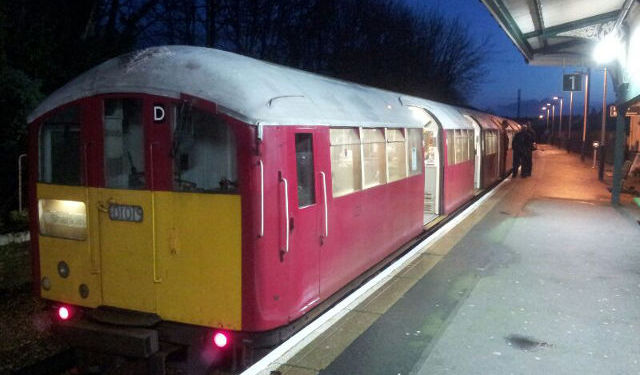Earlier in the week OnTheWight ran the first in series of email exchanges between Nick Finney, Isle of Wight Conservative MP Andrew Turner‘s transport advisor, and David Pugh, who is connected with the Keep Island Line in Franchise (KILF) group.
As mentioned before, the Island Line franchise is a complex subject, so we feel that it’s only right that the exchanges are published unedited, so details are not missed out.
Here’s the third exchange that took place earlier this week. The email is from David Pugh to Nick Finney in response to his earlier email.
Dear Nick
Thank you for this reply.
Let me turn firstly to the Stagecoach Annual Report which you refer to. I will provide a URL link for the benefit of those copied into this email (here).
You have referred to revenue support payments from the Government to South West Trains. As page 18 makes clear:
“The Group’s two wholly-owned rail franchises, South West Trains and East Midlands Trains, continue to receive “revenue support” which partly offsets the extent to which actual revenue falls short of the revenue that was forecast as part of the successful bids for the franchises. As a result of the revenue support arrangements, the profit of our UK Rail Division is less sensitive to changes in revenue than it would otherwise be.”
However, “revenue support” merely offsets the extent to which revenue falls short of the forecast which was included as part of the successful bid for the franchise, rather than providing an actual net subsidy (as you imply). That is a fundamental difference.
When the SWT franchise was awarded to Stagecoach in 2006, it was announced that the Group would “pay £1.19bn for the right to run the routes for 10 years from February 2007”. This figure is in line with what was in my original email further below. All any annual “revenue support” funding does is provide an adjustment to reflect the difference between the level of premium originally projected to be paid (as a result of projected revenue) and the actual revenue generated. It would only be a subsidy if the “revenue support” was a greater figure than the premium being paid – i.e. a net return was not being paid to government.
Importantly, as is pointed out on page 18 of the Stagecoach Annual Report:
“Recent data published by the Office of the Rail Regulator shows that our South West Trains franchise made the largest net return to the taxpayer of any UK train operator in 2012/13, providing a significant premium which the government can choose to invest in public services and improvements for passengers.”
Note the words there: the South West Trains made the largest net return to the taxpayer – i.e. after you deduct the cost of any revenue support payments made from the level of premium paid, there is still a net return to the taxpayer.
On page 19 it says:
“South West Trains and East Midlands Trains face further substantial increases in the amounts they are due to pay to the DfT as franchise premia amounts in the year ahead.”
So let’s look at the page 78 to which you prefer. This page is titled “consolidated financial statements” – i.e. for the Stagecoach Group as a whole, not South West Trains. Yet you quote the £301.3m figure listed for rail revenue support payments as relating to South West Trains alone. So you are fundamentally incorrect on this point. Furthermore – and crucially – you have overlooked the £599m figure above it for rail franchise premia, which is the money Stagecoach are paying to the government to run these franchises. So even when including all other franchises, the net position of revenue support versus premium shows a payment into government, rather than a public subsidy. And this position – as I have already shown – is even more pronounced with South West Trains as their most profitable service, as the information from the House of Commons Library shows.
So, I am afraid, you remain wrong on this. It is remarkable how you have read Stagecoach’s Annual Report so wrongly, yet quote selective figures from the Group’s annual accounts (as if they were just for SWT) so confidently in support of your flawed argument.
Now, I appreciate this email exchange is getting rather protracted, so let me cut to the chase. Why does all this matters? It is significant as you are seeking to give the impression that South West Trains (and thereby Island Line) receive a direct subsidy from the government, and therefore Island Line is directly underwritten by the taxpayer. The reality is much different.
Let me reiterate: Island Line is part of a profitable franchise which contributes a net return to the taxpayer – and any revenue support it may receive merely offsets the extent to which annual revenue falls short of the revenue that was forecast as part of the successful bids for the franchises. But in overall terms, a premium payment is still made. There is no subsidy in place for this franchise (as the information from the House of Commons Library makes clear).
Got it?
As for the other ranting parts of your email, I would strongly encourage you not to consider that critical scrutiny of the blasé statements you and the MP are putting out about our local train service – including constant attempts to talk it down – are attacks. It is perfectly legitimate for us to challenge fundamental untruths and misrepresentations which you are putting out there. You cannot reasonably expect us to sit by while you distort the picture as part of your efforts to promote your economically illiterate (yes it’s that phrase again) plans for our local train service.
I don’t claim to be an expert. I am merely an amateur, as you say, However you claim to be an expert. The difference appears to be that I can read annual accounts accurately, while you can’t.
And contrary to the final sentence of your email, I do not aspire to become a councillor again. I’ve done that. And as for your allegation that I advised people to vote UKIP, that is without foundation.
Now, I suggest you have a re-read of the Stagecoach Annual Report and seek to better understand the figures. You are an expert after all.
Best wishes
David





